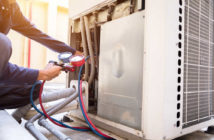Australasian real estate companies and funds outperformed all other regions for the seventh year in succession, according to a global benchmark for environmental, social and governance (ESG) performance of real assets.

The region achieved an average GRESB score of 73 in 2017, compared with a global average of 63.
However, the Australia/New Zealand score is stabilising and the gap between the regions is narrowing.
“Investor demand for transparency will further enhance how ESG-related risks are managed by Australian and New Zealand property companies and fund managers, empowering them to adopt leading sustainability practices,” GRESB Head of Asia Pacific Ruben Langbroek explains.
He says the region is already performing at a high standard.
“We see that 94 per cent of regional companies and funds that reported to GRESB are already disclosing their sustainability performance to stakeholders.
“There is a strong focus on social and governance aspects; 97 per cent have a policy on diversity and equal opportunities, 94 per cent include sustainability-specific requirements in their lease contracts with tenants, while 89 per cent have a community engagement programme in place.”
Improvement needed
The vast majority has taken actions to improve energy and water efficiency of their buildings, while reducing waste streams, Langbroek notes.
However, he believes there is still room for further improvement in reducing the environmental footprint of the sector.
“Increased commitment from Australia policymakers is equally important, as it provides a clear incentive to advance to a net-zero carbon built environment.”
Some 66 companies and funds in Australia and New Zealand representing US$164 billion in assets under management reported on their ESG performance in 2017.
This represents a 27 per cent increase in participant numbers, making Australia/New Zealand the fastest-growing region for GRESB participation.
Globally in 2017 the sector:
- reduced like-for-like energy consumption by 1.1 per cent – equivalent to 79,827 homes
- reduced like-for-like carbon emissions by 2.2 per cent – equivalent to 113,000 passenger cars
- reduced like-for-like water consumption by 0.5 per cent – equivalent to 999 Olympic swimming pools
- and diverted 52.9 per cent of landfill waste – equivalent to 399,008 truck loads.
The results show that the energy improvements made in recent years by the global real estate sector are in line with the energy reductions targets as set out in the United Nations-supported Sustainable Development Goals.
For more information on the 2017 GRESB data and Regional Sector Leaders, visit the GRESB real estate results page.



